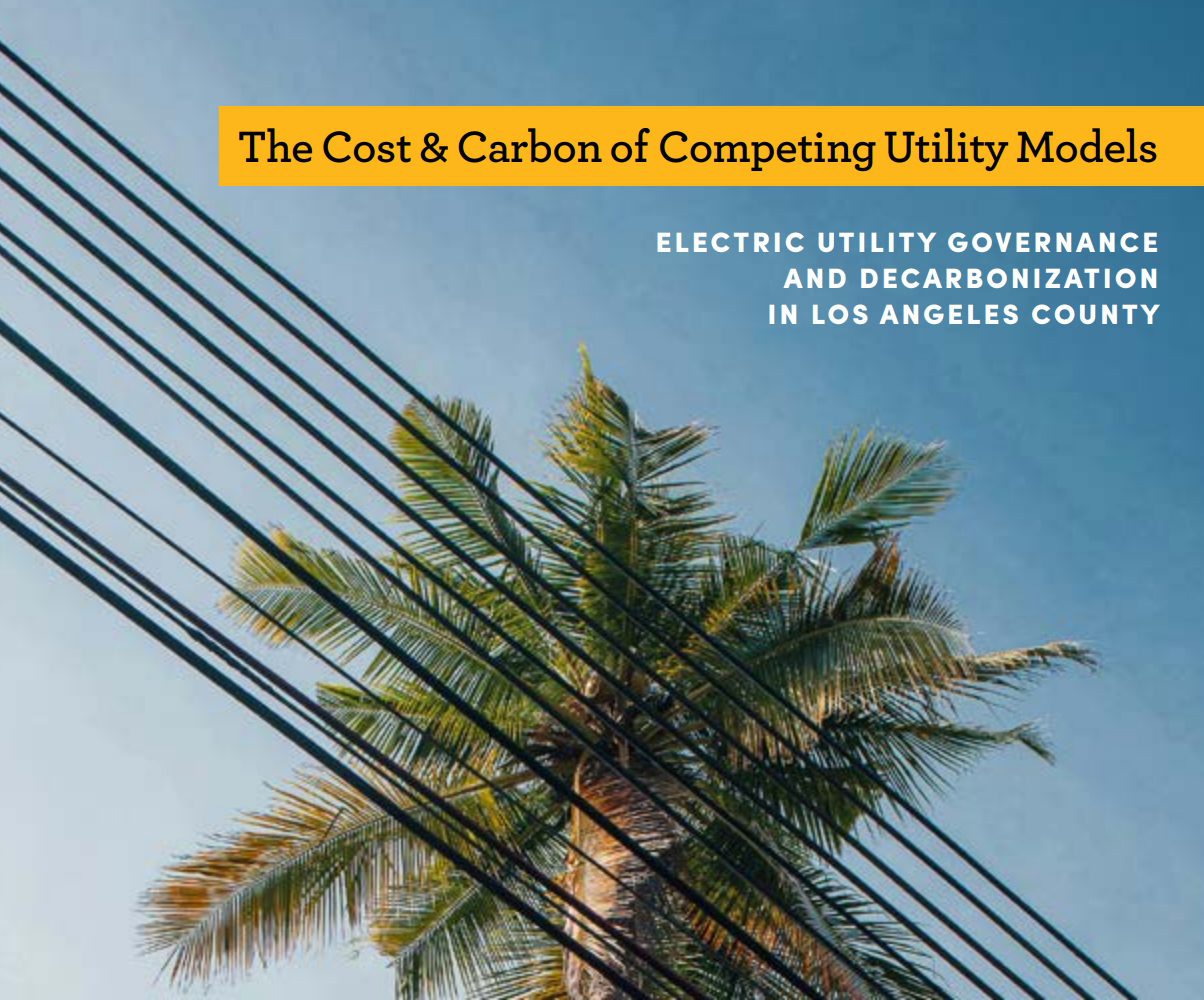CPUC
Crafting a Roadmap for Zonal Decarbonization in California
A new series of briefs from the UCLA Emmett Institute offers legal insights for the gas transition. First up: SB 1221.
California has a $43 billion problem: that is the estimated cost of maintaining the state’s gas network over the next twenty years. That is an astronomical amount to spend on what state policy dictates will eventually become stranded assets: California won’t be able to meet its ambitious climate goals unless it moves away from natural gas altogether, so retirement of these assets is …
Continue reading “Crafting a Roadmap for Zonal Decarbonization in California”
CONTINUE READINGOne Big Energy Idea for the Next Governor
The Drain is a weekly roundup of environmental and climate news from Legal Planet.
If the candidates running to be California’s next governor want a prepackaged idea for how to reduce pollution while making energy more affordable in 2026, here’s one that has been hiding in plain sight. Make a modernization plan to direct money for electrification that is currently being diverted unnecessarily into aging gas infrastructure. But don’t …
Continue reading “One Big Energy Idea for the Next Governor”
CONTINUE READINGCalifornia Must Go Big to Save Big
A new Emmett Institute report shows how California can shift existing infrastructure spending from gas to electric to make homes and energy more affordable.
By Guest Contributor Craig Segall. California can still build big things – and in a new report today, my Emmett Institute co-authors, Denise Grab and Brennon Mendez, and I call for policymakers to think big on our energy system too. The headline: Tens of billions of dollars, annually, are available to make our homes cleaner …
Continue reading “California Must Go Big to Save Big”
CONTINUE READINGThe CPUC Makes Good on Neighborhood Electrification
The state’s gas utilities tried to delay priority zones for decarbonization. The CPUC rejected that approach and has selected priority neighborhoods.
Here’s something to celebrate: the California Public Utilities Commission (CPUC) released its proposed decision designating initial priority neighborhood decarbonization zones. Loyal readers of Legal Planet will have followed our coverage on SB 1221, a law passed last fall that allows the CPUC to support “neighborhood decarbonization zones” to transition away from natural gas toward zero-emissions alternatives. Phasing out natural gas …
Continue reading “The CPUC Makes Good on Neighborhood Electrification”
CONTINUE READINGWhich is Better: LADWP or SCE?
New UCLA Law report, “The Cost & Carbon of Competing Utility Models,” contrasts municipally owned electric utilities and investor-owned utilities.
One of our three main areas of focus at the Emmett Clean Energy Law & Leadership (E-CELL) initiative is Ownership of Energy Resources: exploring how utility ownership structures affect cost, climate, and other outcomes. In June, we released a Pritzker Brief on this topic co-authored by our recent legal fellow, Ruthie Lazenby, as well as …
Continue reading “Which is Better: LADWP or SCE?”
CONTINUE READINGThe Energy Secretary Pushes Pseudoscience
The Drain is a weekly roundup of environmental and climate news from Legal Planet.
Remember alternative facts? That catch phrase from Season 1, Episode 1 where Trump officials lied about the size of his inauguration crowd has now metastasized into a governing philosophy for how federal agencies plan to ignore, and ultimately exacerbate, the climate crisis. Trump 2.0 is pushing alternative science. Late last month, Energy Secretary Chris Wright …
Continue reading “The Energy Secretary Pushes Pseudoscience”
CONTINUE READING“Hi, Can you Hear Me?” A CPUC Debrief
The California Public Utilities Commission heard an earful about neighborhood decarbonization. Here’s the input from Californians who support climate action.
More people who want climate action should attend public forums like the ones that the California Public Utilities Commission held last Thursday regarding the selection of neighborhood decarbonization projects. More of us should sit on these calls and sign up to speak. Even if we aren’t party to a specific proceeding or don’t feel expert …
Continue reading ““Hi, Can you Hear Me?” A CPUC Debrief”
CONTINUE READINGGas Utilities Can Do Better on Neighborhood Electrification
The state’s largest gas utilities are trying to delay priority zones for decarbonization and to block public access to important data. The CPUC should push them to do more.
Last fall, I wrote about the promise of SB 1221, a law that created a pathway for the California Public Utilities Commission (CPUC) to approve pilot projects that will support priority “neighborhood decarbonization zones” to transition away from building gas service toward zero-emissions alternatives, including electrification and thermal energy networks. Now, the gas utilities have …
Continue reading “Gas Utilities Can Do Better on Neighborhood Electrification”
CONTINUE READINGCan Public Ownership Fix Our Electricity Woes? It’s Complicated
New UCLA report “Power Struggle: California’s Electric Utility Ownership Dilemma” by Sylvie Ashford, Mohit Chhabra, and Ruthie Lazenby
This post is co-authored by Sylvie Ashford and Mohit Chhabra. California’s investor-owned utilities (IOUs) are under intense scrutiny for causing deadly wildfires and charging some of the nation’s highest electricity rates. Adding to these challenges, IOUs are required to make significant clean energy and grid investments to achieve the state’s goal of a net zero …
Continue reading “Can Public Ownership Fix Our Electricity Woes? It’s Complicated”
CONTINUE READINGCalifornia Lawmakers Vote on Energy Affordability Soon
Senate Bill 254 is the most ambitious energy affordability legislation proposed in recent years.
Energy affordability has been a huge focus in Sacramento as the deadline nears for bills to move out of policy committees. Over the past three years, customers of the largest investor-owned electric utilities (IOUs) in the state have seen their rates rise by an average of 5-41%, with nearly one in five households behind on …
Continue reading “California Lawmakers Vote on Energy Affordability Soon”
CONTINUE READING












